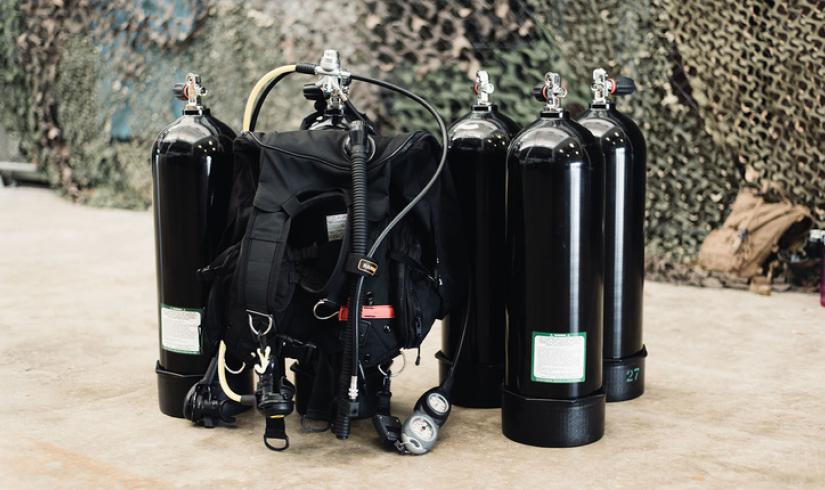
On a normal Saturday afternoon in 2018, after their regular practice, the Wild Boars soccer team in northern Thailand decided to spend an hour exploring a nearby cave. One of their teammates was turning 17 and they wanted to do something special to celebrate his birthday. Carrying no food or water, they set out for what they thought would be a quick detour on their way home. But soon after they entered the cave, it began to rain.
When they were done exploring, they turned around to leave, only to find the entrance was flooded. The rising water forced them to retreat farther and farther into the cave system. For nine days, they were trapped two-and-a-half miles underground in total darkness. Even after rescue divers found them, it took another week to devise a plan to rescue them. It was a race against the clock, with another monsoon storm on the way.
To get them out safely, divers had to navigate an underwater labyrinth that included sections with zero visibility, dangerously strong currents, and narrow passages — some only 28 inches wide. Two divers died during the rescue operation, but in the end, all 12 soccer players and their assistant coach made it out alive and in good spirits, despite their ordeal.
How did these boys and their coach survive against seemingly impossible odds? They possessed qualities that psychologists call “emotional resilience.” The word resilience comes from the Latin verb resilire which means to jump back or recoil and that’s exactly what resilient people do when faced with adversity — they bounce back.
“Resilient people do not let adversity define them,” writes Hara Estroff Marano in Psychology Today. “They find resilience by moving towards a goal beyond themselves, transcending pain and grief by perceiving bad times as a temporary state of affairs.”
Today, we are all living through a moment of trauma, as a global pandemic threatens millions of lives. By cultivating resilience in ourselves, we can better ourselves mentally for the task of thriving in times of difficulty, instead of letting the stress crush our will to go on. Here are four things we can all learn about resilience from the Thai Cave Rescue:
Resilient People Adapt to Their Circumstances
The soccer team’s excursion to the Tham Luang Nang Non cave should have been uneventful, but devastating monsoon rains came a week earlier than expected. Events beyond our control can change our lives, but resilient people are able to adapt to their new normal and focus on the future instead of staying stuck in the past. To survive in the cave, they team moved to higher ground, found a source of fresh drinking water, took turns trying to dig their way out, played games to pass the time, and maintained their sense of humor.
Resilient People Balance Optimism and Realism
Staying positive is an important factor in overcoming adversity, but truly resilient people temper their optimism with an objective view of the facts.
"I told everyone to fight and not be defeated," the team’s assistant coach, Ekkaphon Chanthawong, later told reporters. There was a lot they didn’t know. They didn’t know if anyone would come to rescue them, if the water level would keep rising or if it would recede, or if there was another way out of the cave. By weighing the available facts, they were able to keep their situation in perspective, staying hopeful while also taking concrete steps to ensure their survival.
Resilient People Practice Mindfulness
The first night in the cave, Chanthawong, who had experience as a Buddhist monk, taught his players how to meditate to stay calm and centered. In a crisis, it’s easy to be overwhelmed by powerful emotions, like fear and anger, which can cloud your judgment by activating your brain’s fight or flight response. While this is helpful when evading danger in the short term, spending a prolonged amount of time in fight-or-flight mode is detrimental to our mental health. Mindfulness practices, like meditation, breathing exercising, or journaling can help us respond positively to stress and trauma.
Resilient People Rely on Others
With water rushing in, there was no way the boys in the cave could’ve escaped without help. It took an international team of 10,000 people to make their rescue possible, including 100 divers, logistics experts, experienced cave divers, and volunteers from all over the world. In moments of extreme stress, we need a network of support. Resilient people are intentional about the relationships they form. We can all help ourselves endure adversity by surrounding ourselves with people who are willing and able to offer support when we need it most.
How to Grow Through Hardship
We all experience moments when it feels like we are trapped in a cave with no escape. The obstacles we face come in many shapes and sizes from widespread catastrophes to moments of personal hardship. By teaching ourselves to be more adaptable, self-aware, mindful, and willing to rely on others, we can overcome temporary setbacks and learn from them to grow and thrive when the moment has passed.
Learn more about resilience and when to seek help on the American Psychological Association’s website.